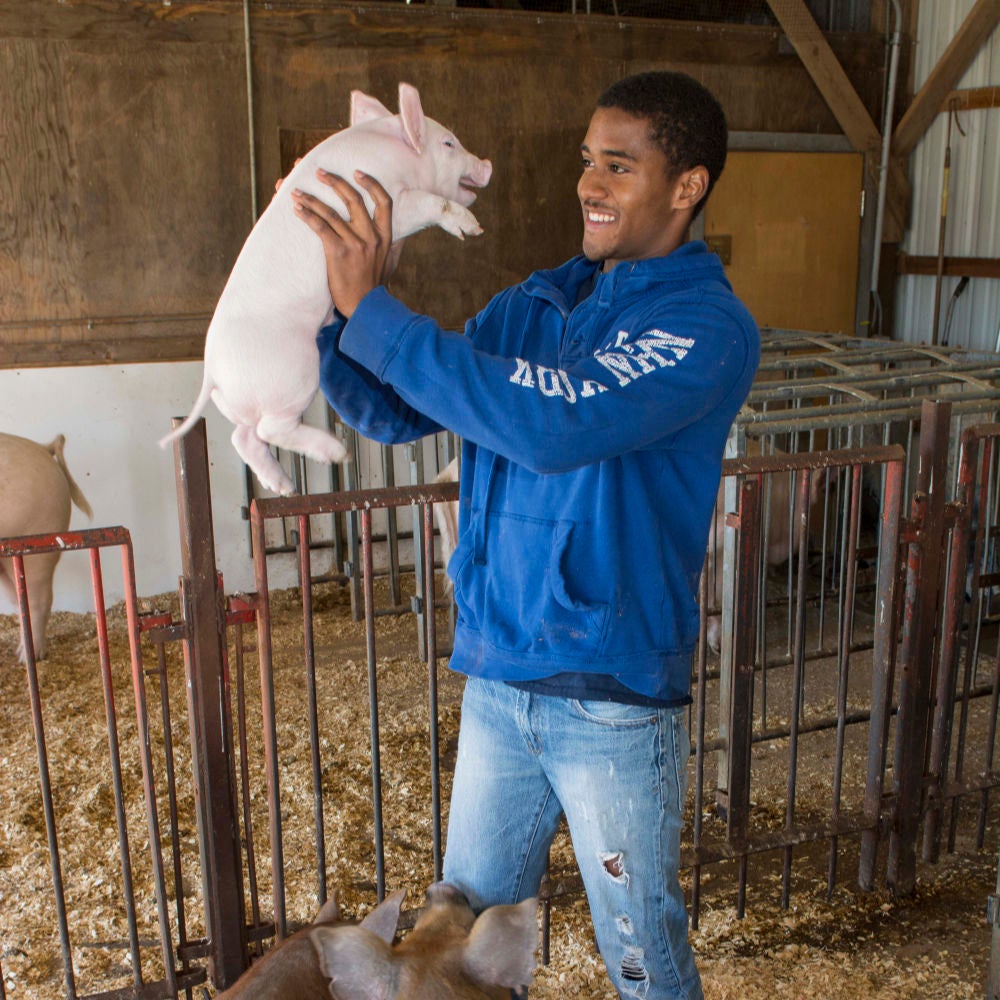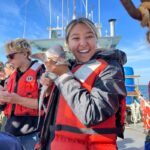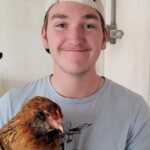Students in the department of Fisheries, Animal and Veterinary Sciences learn to solve pressing problems in animal care, health, and reproduction, as well as the sustainable development and management of fisheries and aquaculture farms, and in the dynamics of food systems.
With a choice of three distinct undergraduate majors and a variety of interdisciplinary graduate programs, our students learn through hands-on experiences at URI’s campus farms and off-campus field sites. Here you’ll gain the knowledge and skills needed for a successful career in a range of emerging fields in animal and veterinary sciences, sustainable food production in terrestrial, aquatic, and marine environments, and in food systems policy and organization.
The URI Difference

Hands-On Learning
As a FAVS student, you’ll have access to hands-on learning in URI’s own excellent research facilities, which include Peckham Farm, coastal laboratories at the Narragansett Bay Campus, and a 54-foot fishing and research vessel for exploration of Narragansett Bay. Many students also choose off-campus internships at nearby sites such as Mystic Aquarium, Roger Williams Park Zoo, and Buttonwood Park Zoo.

Love Your Job
Whether you choose a path in veterinary medicine, animal science, fisheries and aquaculture, or sustainable food production, careers in multiple areas await you. These include positions with large- and small-scale animal and aquaculture farms, fisheries, governmental and non-governmental agencies, zoos, aquariums, shelters, laboratory animal facilities and research labs. Our programs seamlessly transition into a variety of graduate programs.

Dive In
In addition to our undergraduate majors and minors, the department offers a Marine Technical Certificate program that offers you instruction in a range of marine skills such as boat handling, scuba diving, underwater research, equipment maintenance, and more. You’ll gain professional certifications needed for many positions in a variety of marine-related careers.
News
 A Whale of a Time: Brianna Pizzano on Beluga Whale Research - Since stepping foot on campus, Brianna Pizzano has been making waves in her study of beluga whale behavior. Now in her senior year as a double major in animal science and marine biology, she has worked closely with Professor Justin Richard in his lab.
A Whale of a Time: Brianna Pizzano on Beluga Whale Research - Since stepping foot on campus, Brianna Pizzano has been making waves in her study of beluga whale behavior. Now in her senior year as a double major in animal science and marine biology, she has worked closely with Professor Justin Richard in his lab.
 URI Students Train Chickens for Animal Behavioral Research - Understanding how animals behave and what influences their behavior are crucial components of conservation efforts. At URI’s Peckham Farm, Brandon Ferro and Lilly Brooks, animal science and technology (AVS) majors, learned modern animal training techniques as part of a course on animal behavioral research with Assistant Professor Justin Richard this semester.
URI Students Train Chickens for Animal Behavioral Research - Understanding how animals behave and what influences their behavior are crucial components of conservation efforts. At URI’s Peckham Farm, Brandon Ferro and Lilly Brooks, animal science and technology (AVS) majors, learned modern animal training techniques as part of a course on animal behavioral research with Assistant Professor Justin Richard this semester.
